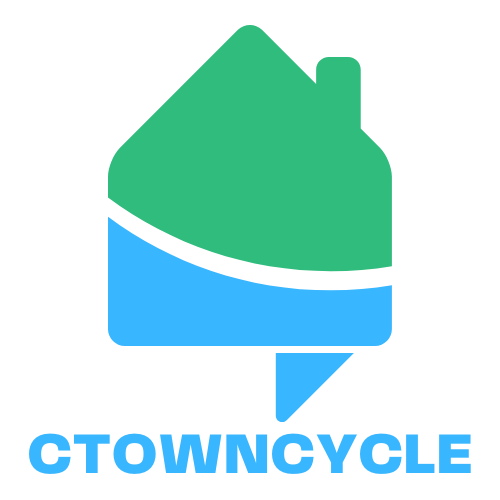Table of Contents
ToggleImagine living in a place where your mortgage is paid for by someone else—sounds like a dream, right? Enter the world of house hacking, where savvy homeowners turn their properties into money-making machines. This isn’t just about sharing a space; it’s about unlocking a treasure trove of financial freedom while having an extra roommate who might just steal your snacks.
In the pages of a house hacking book, readers discover practical strategies to maximize their living spaces and minimize their financial burdens. Whether it’s renting out a room or converting a basement into a cozy apartment, this approach can transform the way people think about homeownership. So grab a cup of coffee and get ready to dive into a world where living well and saving money go hand in hand—because who doesn’t want to live for free?
Overview of House Hacking
House hacking allows homeowners to reduce their living costs by renting out parts of their properties. This approach makes it possible for individuals to offset mortgage payments while enjoying additional income. Typical methods include renting extra rooms, leasing a basement apartment, or even purchasing a multi-family home to rent out separate units.
Individuals using this strategy benefit from lower housing expenses, contributing to savings or investments. Renting out a room can generate substantial monthly income, making it feasible to convert living situations into profitable ventures. Homeowners often use the income from rentals to pay down debt or invest in further real estate.
Converting underutilized spaces like basements or attics into rental units maximizes property potential. This option typically appeals to those who can manage significant renovations and comply with local housing regulations. Owners may also consider short-term rentals through platforms like Airbnb, enhancing income opportunities while maintaining flexibility.
Evaluating local rental markets enables homeowners to set competitive prices. Establishing a budget for essential repairs and updates before opening a rental space proves beneficial. Many successful house hackers recommend researching the legality of different rental arrangements in their areas to avoid potential issues.
Networking with other house hackers offers valuable insights. Engaging in local real estate investment groups or online communities can provide support and inspiration. Most importantly, understanding the long-term commitment of becoming a landlord prepares homeowners for this rewarding yet challenging journey.
Benefits of House Hacking


House hacking offers multiple advantages for homeowners seeking financial relief and increased revenue streams. This method not only benefits personal finances but also enhances living situations.
Financial Freedom
Generating income through house hacking creates opportunities for financial freedom. Homeowners can cover mortgage payments by renting out rooms or units. This additional cash flow allows for savings and investment in other assets. With reduced financial burdens, homeowners often find themselves with more disposable income. They can use this for travel, personal development, or retirement contributions. Ultimately, utilizing space effectively leads to long-term wealth-building strategies.
Reduced Living Expenses
Living expenses can significantly drop through house hacking strategies. Renting out parts of a home offsets monthly bills, including mortgage, utilities, and maintenance costs. Owners convert spaces like basements or garages into separate units, which creates additional rental income. After living expenses decrease, more funds become available for essential needs and leisure activities. This tailored approach encourages budget flexibility while making homeownership more sustainable. Smart management of rental agreements helps maintain low living costs and high rental demand.
Key Concepts in House Hacking
House hacking encompasses various strategies that help homeowners reduce their mortgage costs and earn rental income. Understanding key concepts ensures effective implementation of this strategy.
Real Estate Investments
Investing in real estate presents opportunities for wealth growth. Purchasing multi-family homes allows for multiple rental units, maximizing profit potential. Analyzing property values in local markets helps identify lucrative investment areas. Cash flow assessments determine whether a property generates enough income to cover expenses. Securing investment financing requires thorough research on loan options available. Investors should also consider property management options if they cannot oversee rentals themselves. Market trends influence investment decisions, making ongoing education essential for success.
Rental Income Strategies
Setting competitive rental prices ensures optimal occupancy rates. Room rentals often yield substantial returns, especially in high-demand areas. Creating appealing spaces, such as renovated attics or basements, attracts potential tenants. Listing properties on short-term rental platforms increases revenue flexibility. Networking with local real estate professionals can uncover off-market rental opportunities. Understanding tenant laws helps landlords navigate legal obligations effortlessly. Lastly, establishing clear rental agreements sets expectations and protects both parties involved.
Top House Hacking Books
Numerous resources exist for those interested in house hacking. These books provide insights and strategies to succeed in this investment approach.
Must-Read Titles
- “The House Hacking Strategy” by Craig Curelop
This book offers a comprehensive guide tailored for beginners. Craig shares actionable advice on how to utilize rental income to reduce living expenses.
- “Real Estate Investing for Dummies” by Eric Tyson and Robert S. Griswold
This classic resource simplifies complex concepts. Readers learn about various real estate strategies, including how to apply house hacking principles effectively.
- “The Book on Managing Rental Properties” by Brandon Turner
This title provides essential management tips for aspiring landlords. Brandon covers techniques for attracting tenants and maintaining rental properties efficiently.
Author Insights
Craig Curelop emphasizes the importance of mindset. He encourages readers to view their homes as income-producing assets, motivating them to take action. Eric Tyson highlights the significance of market research. Understanding local rental markets is crucial for maximizing income potential. Brandon Turner focuses on tenant relationships. He stresses that good communication encourages timely payments and extends tenancy.
How to Get Started with House Hacking
House hacking involves strategic planning and selecting the right property to maximize benefits. Following these steps helps in starting the journey.
Creating a Plan
Developing a comprehensive plan is essential for successful house hacking. Identify specific goals, such as how much rental income to generate each month or which spaces can be rented out. Assess your current finances to determine a budget for updates and repairs necessary to enhance the property’s appeal. Prioritize necessary improvements to attract renters while staying within budget limits. Creating detailed timelines ensures that tasks are completed on schedule, which streamlines the process. Research local rental markets for trends, average rental rates, and tenant demands. Setting targets based on real estate metrics fosters realistic expectations and motivates consistent progress.
Finding the Right Property
Choosing the right property greatly impacts house hacking success. Seek properties with multiple living spaces, such as duplexes or those with separate basement apartments. Consider locations with high rental demand to ensure consistent cash flow. Analyze neighborhood trends and property values to identify potential growth areas. Evaluate property condition to determine necessary renovations before renting. Think about proximity to amenities like public transportation and shopping centers, which attract potential tenants. Connecting with real estate agents specializing in investment properties can simplify the search. Prioritize options that offer flexible rental opportunities, such as short-term and long-term rentals, to maximize income potential.
House hacking presents a powerful opportunity for homeowners to transform their properties into income-generating assets. By leveraging available space and understanding local rental markets, individuals can significantly reduce their living expenses while building wealth.
The strategies discussed offer practical paths to financial freedom, whether through long-term rentals or short-term platforms. As homeowners embark on their house hacking journey, they’ll find that careful planning and market analysis are key to maximizing their investment.
With the right mindset and resources, house hacking can lead to a sustainable lifestyle and pave the way for future real estate ventures. Embracing this innovative approach not only enhances affordability but also fosters a community of savvy investors.




